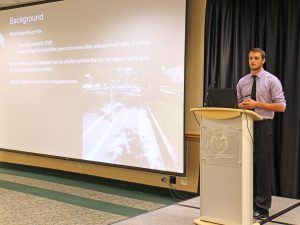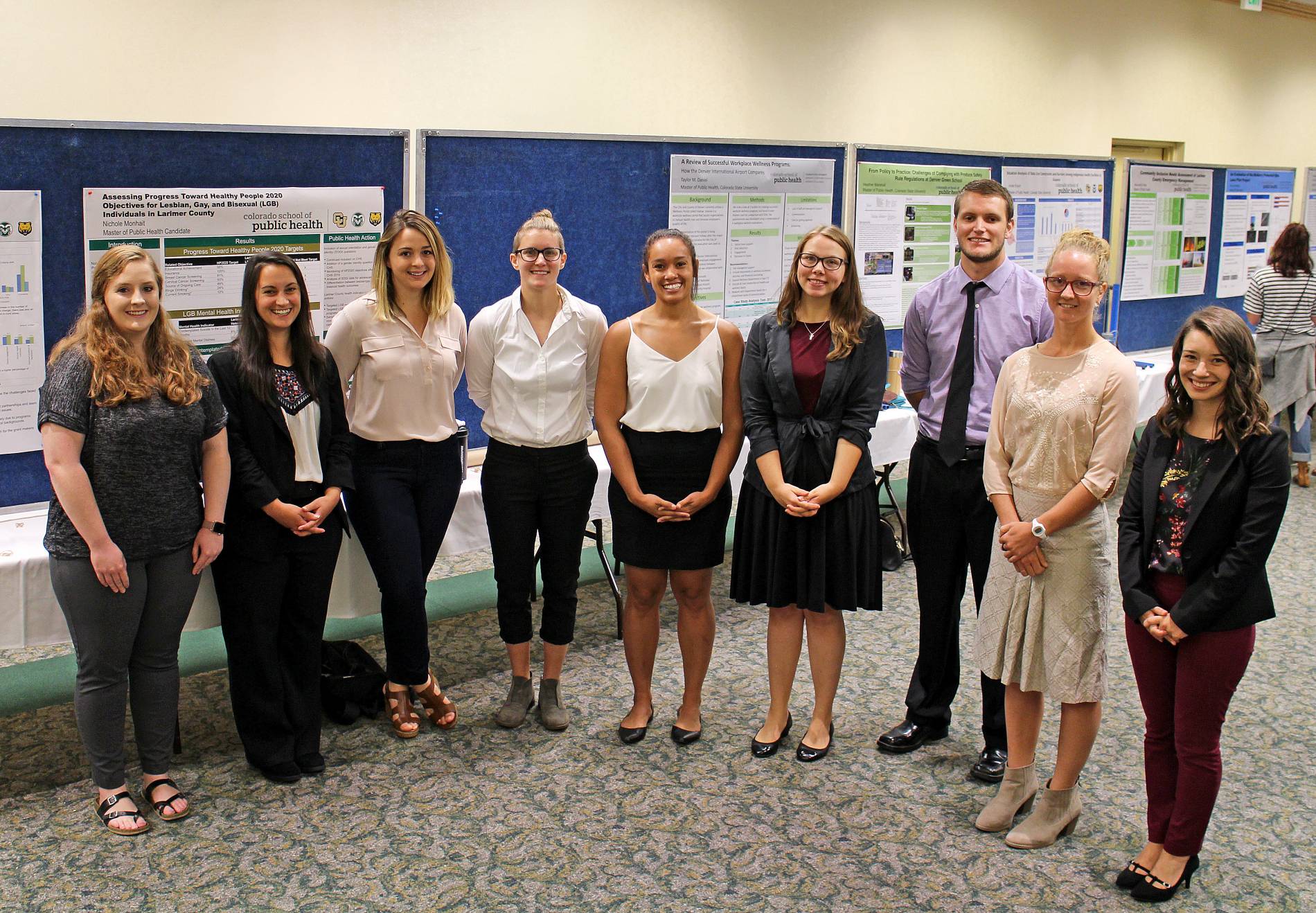While analyzing data use constraints at indigenous health facilities in Guyana, Amber Enyart had this insight: “If you don’t have proper information generated at the grassroots level, the entire system crashes to the ground,” she explained. Amber, a Peace Corps Masters International student in Guyana, was working with another Peace Corps volunteer to analyze the culture of data use within local healthcare in Guyana’s Moruca sub-district. The area’s health system is based on a World Health Organization model, and in speaking with 19 health workers at 11 facilities Amber identified ways to increase their skills in analyzing, interpreting and using data.
Her experience in Guyana, completed for her capstone project in her MPH studies, was among the spectrum of public health research presented at the recent capstone forum for the ColoradoSPH at CSU. Students delved into projects ranging from a community-inclusive needs assessment of Larimer County emergency management to a patient navigator training collaborative employer survey, among others.
Michael Rothfuss, who just graduated in the Physical Activity and Healthy Lifestyles concentration, conducted an evaluation of the Mulberry Protected Bike Lane Pilot Project with FC Bikes. He initially was intrigued by a presentation Nick Heimann, a ColoradoSPH graduate, and Tessa Greegor gave for his Public Health and the Environment class, discussing the work they do for the City of Fort Collins and what future projects they will be working on.
“I live right off Mulberry and Taft,” he explained, “so when they brought up t he Mulberry Protected Bike Lane Pilot Project, I was hooked immediately. I moved here in August of 2017 and ride my bike regularly, including on the Mulberry corridor. I felt this could be my practical application of my public health knowledge in the city that I had only recently moved to but also on a road that I have had experience with riding on.”
he Mulberry Protected Bike Lane Pilot Project, I was hooked immediately. I moved here in August of 2017 and ride my bike regularly, including on the Mulberry corridor. I felt this could be my practical application of my public health knowledge in the city that I had only recently moved to but also on a road that I have had experience with riding on.”
His evaluation included watching six days and 150 hours of video footage, which he said helped him recognize the importance of validating measurement tools.
Heather Marshall, who recently graduated in the Global Health and Health Disparities concentration, studied the challenges of small farms in complying with produce safety rule regulations. She worked with Denver Green School, a Neighborhood Innovation School that emphasizes project-based learning, which has a 1-acre produce farm. Among her most valuable lessons, she said, was that “food safety is an ongoing process.”
Because Denver Green School was established with foundational principles of environmental responsibility, “the idea of throwing away paper towels seemed very wasteful,” Heather explained. “Also, there was concern that (laundry and surface cleaning) detergent could impact the environment.”
However, she said, through collaborative public health practice there can be a workable balance of safety, ideals and public benefit.

